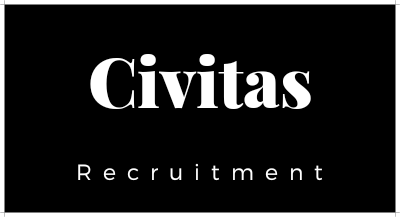It’s no surprise that, in recent years, UK businesses are experiencing difficulty recruiting employees with relevant skills. With a growing number of vacancies and, simultaneously, a shortage of suitable candidates to fill them, we understand the anxiety that many small firms are facing in the current job market. We have seen this first-hand in the charity sector, too. With increasing uncertainty, it’s more important than ever that hiring managers are able to find the right person for the role, and – even more importantly – that they are able to hang on to good staff.
Research has shown that companies need to go beyond base salary to keep people engaged and enthused about their place of work. According to a recent Glassdoor survey, a whopping 80% of employees said they would prefer additional benefits over a pay increase. So, what do prospective candidates really look for in terms of job satisfaction? From our experience, it can be whittled down to the three Ps: Purpose, Practicality, and Progression.
Purpose
As with any sector, but especially the charity sector, purpose plays a huge role in an employee’s level of engagement with their company and their role. If you can align your business’s purpose with your employees’, it’s a recipe for success. At Civitas Recruitment, we help our clients to consider this right from the get-go, in how the job description talks about the company’s mission and in how we brief the candidate on the role. Establishing the purpose upfront and allowing the candidate an opportunity to reflect on whether they align with that purpose, means that we only present our clients with people who are already bought into the organisation; people who truly want to make a difference.
Practicality
We can’t pretend that salary, pension, and number of day’s annual leave don’t matter to people; it does. However, there is a lot to be said for ‘softer’ benefits too. Being able to finish work a bit early to pick up your child from school or start a bit later to make it to an appointment, is invaluable in establishing a healthy work-life balance. A study by the Society for Human Resource Management found that 83% of survey respondents said that flexible work and leave time are extremely or very important. Not only this, but it also makes employees feel more valued – as it stems from a point of trust.
Progression
As we all know, trust works both ways. And for employees to trust their employer, they need to feel that their best interests are at heart – including proactively offering opportunities for people to learn, grow and evolve. Being able to pre-empt employees’ desire for progression means that you’re able to stay competitive, offering training in specialist areas or increased responsibilities, for example, before your people start looking for this elsewhere. Having regular development conversations will ensure that you’re able to listen and respond to your employees’ needs. It’s also something that we can coach you on when hiring, to make sure that you’re telling ambitious candidates about the development opportunities available in this role and beyond.
What we’ve learnt
Our collective experience of working in the charity sector for over 15 years means that we know what works when it comes to attracting and retaining the best people for the job. Following the three Ps will make sure that you are: tailoring your search to the candidates who truly care and are passionate about your charity’s mission; offering competitive benefits that make prospective employees feel trusted and supported in their personal lives; and keeping employees engaged around what the company has to offer them in the immediate future and the long term.
Get in touch to find out more about how we can support you in your recruitment search.
Related posts
Internal Mobility: Why the Best Talent Strategy is Looking Right at You – April 2025
Let’s stop pretending the war for talent is just outside our walls. It’s not. It’s also right inside—among the people who already know our systems, our culture, and our customers. In 2025, the smartest hiring strategy isn’t external recruitment. It’s internal mobility. The talent you’re chasing? You may already employ them. You just haven’t asked…
Why You Should Avoid Over-Relying on AI for Writing Cover Letters and Screening – April 2025
In today’s digital age, AI has become an indispensable tool for job seekers. From crafting CV’s to researching companies, it offers a faster and more streamlined approach to navigating the job search. But when it comes to writing cover letters or answering screening questions, there’s a significant risk in over-relying on AI. Although these tools…
Skills Based Hiring – May 2024
Adapting to Skill-Based Hiring in the Charity Sector The job market is evolving, and so are hiring practices. More and more organisations, including those in the charity sector, are shifting their focus from traditional qualifications to a skill-based approach when recruiting new talent. This means, hiring managers care less about degrees and more about what…
How to draft an authentic and appealing job description – September 2023
The perfect Job Description doesn’t exist…or does it? The first step of successfully filling a role is to write a Job Description, or JD – this will be posted on the charity’s website, featured in job adverts, or possibly sent to you by your recruiter. The aim of the JD is to sell the role…
Five practical tips to help you prepare for your next interview – July 2023
Five practical tips to help you prepare for your next interview Whether you love them or hate them, interviews are a necessary step in advancing your career. And, regardless of which side of the fence you sit on, or how much interview experience you have, there are some easy wins that can take you from…
The Law of Attraction: How to recruit and retain high-calibre talent – July 2023
It’s no surprise that, in recent years, UK businesses are experiencing difficulty recruiting employees with relevant skills. With a growing number of vacancies and, simultaneously, a shortage of suitable candidates to fill them, we understand the anxiety that many small firms are facing in the current job market. We have seen this first-hand in the…





